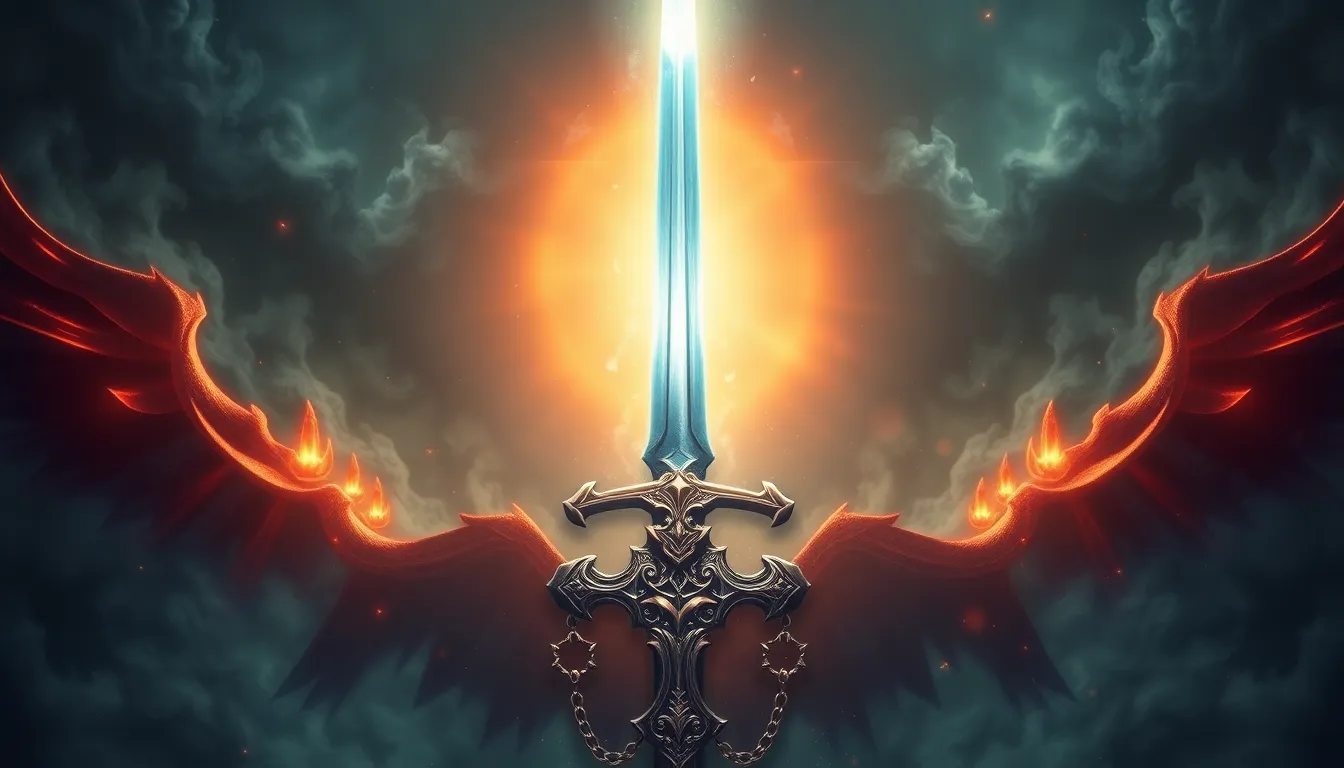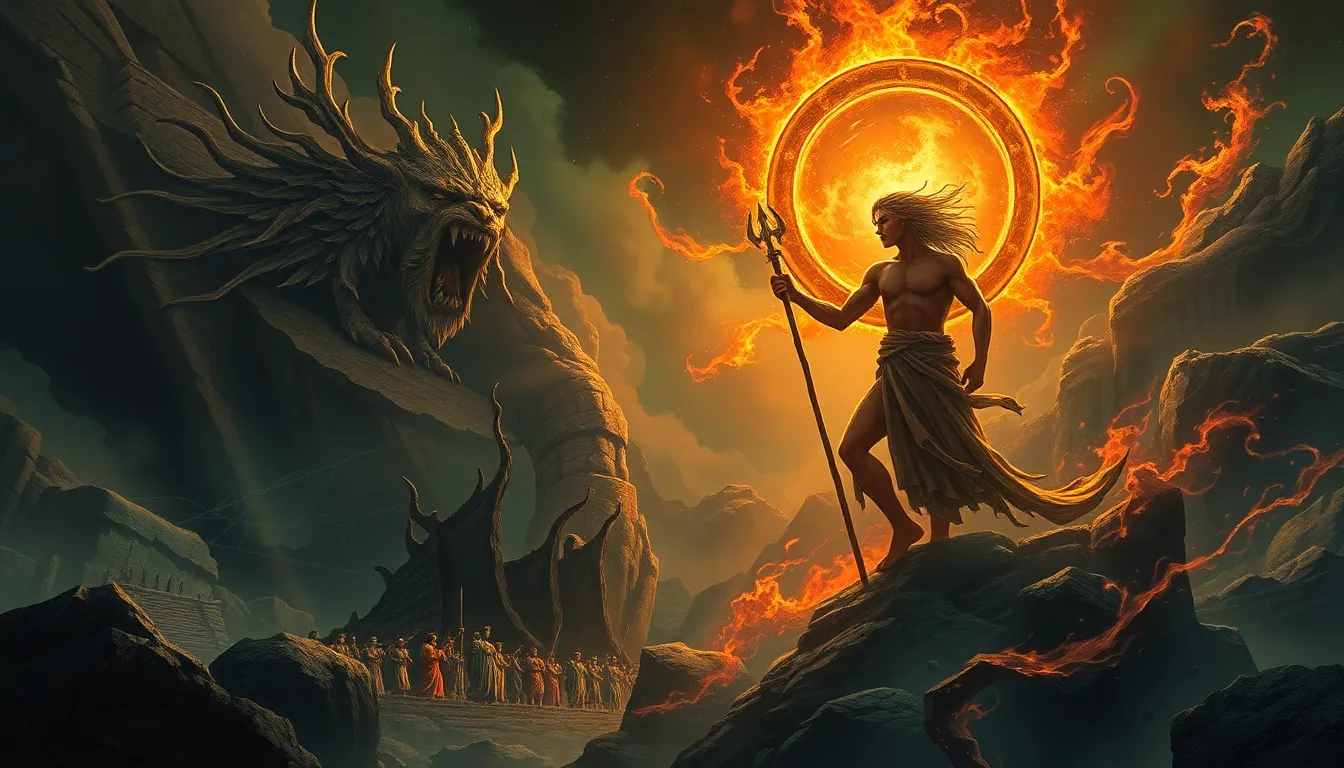The Sword of Justice: Legends of Honor and Valor
Introduction to the Concept of Justice in Mythology
Justice is a fundamental concept that resonates across cultures and epochs, embodying the principles of fairness, equity, and moral righteousness. In mythology, justice often transcends mere legal definitions, intertwining with notions of honor, valor, and the hero’s journey. The sword, a potent symbol in many narratives, frequently represents both the enforcement of justice and the virtues of its wielders.
Throughout history, swords have signified more than just weapons; they embody the ideals of the brave souls who wield them. They serve as instruments of justice, protectors of the weak, and are often associated with legendary figures who uphold their values in the face of adversity.
Historical Context: Swords as Instruments of Justice
The evolution of swords can be traced back thousands of years, with ancient civilizations developing various forms of this weapon for both combat and ceremonial purposes. The craftsmanship of swords evolved alongside societal values, often reflecting the ethos of justice in their design and use.
- Excalibur: The legendary sword of King Arthur, symbolizing divine kingship and the rightful rule over Britain.
- Durendal: The sword of the paladin Roland, representing loyalty and the defense of faith and homeland.
These historical swords are not merely items of warfare; they carry stories of their bearers’ quests for justice and their commitment to uphold the law and protect the innocent.
Legends of Honor: Heroes and Their Swords
Throughout history, numerous legendary figures have emerged, each with their own swords that symbolize their unwavering dedication to justice and honor.
- King Arthur: His quest for the Holy Grail symbolizes the search for spiritual and moral enlightenment. His sword, Excalibur, is a testament to his rightful sovereignty and the ideals of chivalry.
- Roland: As a hero of the Frankish Empire, his stand at the Battle of Roncevaux Pass with Durendal epitomizes courage and the fight against tyranny.
These heroes embody the ideals of honor and valor, showcasing how their actions and choices define their legacies as champions of justice.
The Symbolism of the Sword in Different Cultures
The sword’s symbolism varies significantly between cultures, often embodying both destruction and protection.
Eastern Cultures
In Eastern traditions, the sword often represents a path to enlightenment. For instance, the katana in Japanese culture is not just a weapon but a symbol of the samurai’s honor and spiritual discipline.
Western Cultures
Conversely, in Western cultures, swords frequently symbolize martial prowess and chivalric values. They are often associated with the knightly code and the responsibilities that come with power.
Regardless of culture, the sword serves as a dual symbol—capable of both destruction and protection, reflecting the complex nature of justice itself.
The Role of the Sword in Medieval Justice Systems
In medieval societies, the sword was not merely a weapon but a crucial tool for maintaining law and order. It was intimately tied to the concepts of chivalry and knightly conduct.
- Chivalry: A code that emphasized virtues such as bravery, courtesy, honor, and great respect for women and the weak.
- Knighthood: Knights were often seen as enforcers of justice, their swords representing their commitment to protect the realm and its inhabitants.
The sword, therefore, became a symbol of authority, wielded by those tasked with upholding the law and ensuring justice prevailed in their communities.
Literary Representations of the Sword of Justice
Literature has long portrayed swords as powerful symbols of justice. From epic poems to contemporary novels, these narratives often explore themes of honor and valor through the lens of their protagonists’ journeys.
- The Once and Future King by T.H. White: This retelling of the Arthurian legend explores the moral implications of wielding power.
- The Song of Roland: An epic poem that showcases Roland’s bravery and the sacrifices made for honor and justice.
The impact of these literary works extends beyond mere storytelling, shaping societal views on what it means to be just and honorable.
The Evolution of the Sword in Modern Media
In contemporary films, video games, and literature, swords continue to be depicted as symbols of justice, though interpretations have evolved significantly.
- Film: Movies like Gladiator and The Lord of the Rings highlight the struggle between good and evil, where swords often represent the fight for justice.
- Video Games: Titles such as Dark Souls and The Legend of Zelda explore themes of heroism and the moral choices associated with wielding power.
Modern interpretations sometimes challenge traditional notions of justice, presenting characters who grapple with moral ambiguity and the consequences of their actions.
The Sword of Justice in Modern-Day Movements
In today’s sociopolitical landscape, the symbolism of the sword has transcended the physical realm, finding new life in contemporary social justice movements. Activists often invoke the metaphorical “sword” to symbolize their commitment to fighting for justice and equality.
- Symbolism in Activism: The sword can represent the fight against oppression—advocating for change and defending the rights of the marginalized.
- Metaphorical Use: Phrases like the pen is mightier than the sword highlight the power of words in the struggle for justice.
This metaphorical interpretation underscores the enduring relevance of swords as symbols of honor, valor, and the quest for justice in modern society.
Lessons from Legends: What Swords Teach Us About Honor and Valor
The stories of legendary heroes and their swords convey essential moral and ethical lessons. They teach us the importance of standing up for what is right, the value of courage in the face of adversity, and the necessity of integrity in our actions.
- Upholding Honor: Legends remind us that honor is not merely a title but a commitment to ethical conduct.
- Valuing Courage: True valor is often found in standing up for justice, even when faced with overwhelming odds.
In today’s world, these lessons are more important than ever, guiding our actions and choices in a complex society.
Conclusion: The Enduring Legacy of the Sword of Justice
The legacy of the sword as a symbol of justice is profound and enduring. From ancient myths to modern activism, the ideals of honor and valor continue to resonate within our justice systems and societal values.
As we reflect on these legends, we recognize their lasting impact on our understanding of justice, reminding us that the quest for fairness and integrity is a timeless endeavor, essential for the betterment of society.



